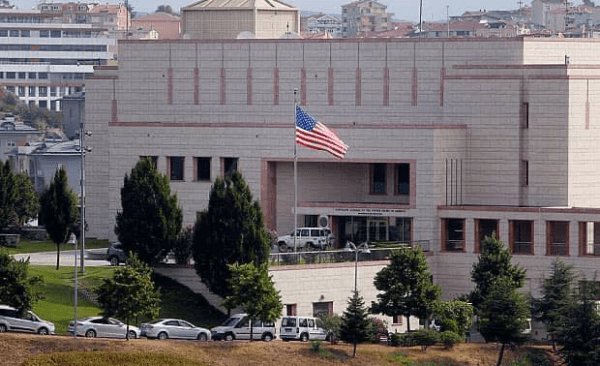
Are We Still Human or Just Content? – Mary Remmy Njoku Speaks Out on Nigeria’s Dangerous Obsession With Clout

Nigerian actress and filmmaker Mary Remmy Njoku has once again sparked an important conversation online, one that touches the very heart of how society now consumes tragedy, pain, and even death. In a passionate outburst on social media, the Nollywood star lamented the troubling trend in Nigeria where almost everything has been reduced to content. Her words struck a nerve because they held up a mirror to the nation’s digital culture, a culture where empathy is gradually being replaced by the insatiable hunger for likes, shares, and clout.
According to Njoku, the disturbing reality in today’s Nigeria is that nothing is sacred anymore. “A death? Content. A mother’s mourning? Content. A beating on the street? Content. Even the tears of a child,” she wrote, highlighting how everyday tragedies that should inspire compassion are now being exploited for digital attention. What was once a line no one dared to cross has now been erased, and in its place is a boundless desperation to capture moments, not to help, not to comfort, not to heal, but to trend. Njoku’s lamentation resonates deeply because we have all seen it. A motor accident occurs and instead of rushing to help the victims, dozens of bystanders whip out their phones to record. A woman collapses in the market, and within minutes, her suffering is not just shared online but captioned for engagement, analyzed for views, and consumed as if it were entertainment. The humanity of the moment is lost, replaced by digital validation that rewards exploitation.
In her statement, Njoku reminds Nigerians of the original power of social media. Across the globe, it has been a tool for rewriting narratives, exposing injustice, amplifying activism, uniting communities, and even toppling corrupt systems. From the Arab Spring to the #MeToo movement, social media has proven itself as a force for good when wielded responsibly. But in Nigeria, Njoku argues, we seem to be using it differently. Instead of building, we exploit. Instead of amplifying justice, we broadcast suffering. Instead of fueling positive change, we chase instant fame at the cost of empathy.
Her frustration is not misplaced. A scroll through any Nigerian social media feed often confirms her observations. Videos of fights, humiliation, heartbreak, and even funerals are constantly recycled for entertainment. The more shocking the content, the more viral it becomes. And behind every viral video is a real human being, often stripped of dignity, reduced to a prop in someone else’s chase for clout. Njoku asks the uncomfortable but necessary question: What exactly are we turning into?
She paints a vivid picture of logging onto social media and seeing “noise.” Pain is broadcast like comedy, suffering packaged like skits, and grief turned into memes. For many, the line between reality and performance has blurred so much that tragedies are consumed the same way as entertainment skits. In that environment, empathy is drowned out, and humanity is muted. For Njoku, the only solution has been logging off, retreating to the real world, where problems can be solved with real people in real time. But not everyone has that choice. Victims who are recorded and turned into “content” do not get to log off. Their pain remains on the internet forever, replayed thousands of times by strangers. Their search for justice or comfort is overshadowed by comments, memes, and jokes at their expense.
Her call to action is both urgent and simple: Nigerians must pause before pressing record. They must breathe before typing. They must search within themselves before uploading. The key question she wants every content creator and social media user to ask is: Am I amplifying humanity, or am I stripping it away? Because in a country where survival is already hard enough, where tragedies occur daily, the least we owe each other is empathy, not exploitation.
The actress’s words reflect a deeper societal crisis. The obsession with clout in Nigeria has become so pervasive that it has started reshaping values. The once sacred virtues of respect, dignity, and empathy are often sacrificed on the altar of virality. People no longer just want to live; they want to trend. And when trending becomes the ultimate prize, the boundaries of morality are constantly pushed further and further. A drowning man is no longer someone to save; he is a viral clip waiting to happen. A grieving widow is no longer someone to comfort; she is a hashtag to be milked. Even children, who should be shielded from exploitation, are not spared, as their tears and innocence are turned into meme-worthy content.
Njoku’s lamentation is also a call for national introspection. If a society loses its humanity in the pursuit of entertainment, then what is left? Social media may reward sensationalism, but a nation that thrives on consuming pain as laughter is gradually eroding its soul. It is a frightening reality that calls for reflection at every level—individual, communal, and institutional.
This is not the first time Mary Njoku has spoken boldly on societal issues, and her willingness to voice uncomfortable truths has made her one of the respected voices in Nollywood. This latest outcry is particularly timely because it coincides with the rise of “content creation” as one of the most lucrative and popular career paths among Nigerian youths. While there is nothing inherently wrong with creating content, the danger lies in the complete disregard for ethics. When the suffering of others becomes raw material for content, when tragedy becomes entertainment, then society has lost sight of its values.
Njoku’s appeal is ultimately a plea for Nigerians to reclaim their humanity. To stop seeing people as content and start seeing them as human beings. To remember that behind every video is a person who deserves dignity. To use social media not just as a marketplace for clout but as a force for good, a tool for nation-building, empathy, and justice.
Her final words are perhaps the most haunting of all: We are still human in this country… aren’t we? That question hangs in the air like a challenge, daring every Nigerian to confront the uncomfortable truth about who we are becoming. It is not just a call to stop recording; it is a call to recover empathy before it is completely lost. Because if every tragedy must first become a trending video, if every cry is just background noise for someone else’s content calendar, then the line that separates humans from algorithms has already been erased.
In the end, Mary Remmy Njoku’s message is a mirror, forcing Nigerians to look at themselves and decide what kind of society they want to be. Will it be one that finds joy in the pain of others, or one that rises above the noise to amplify humanity? The choice, as she rightly points out, is ours to make—before it is too late.


